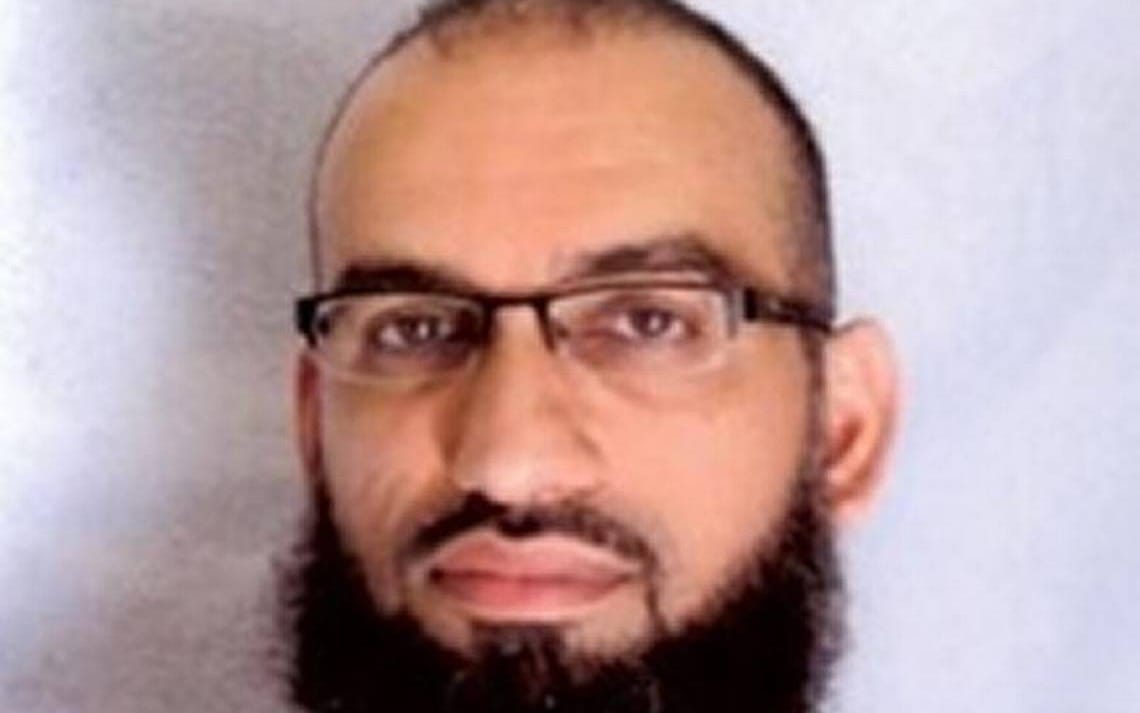Why Ammar al-Baluchi Turned Down The Guantanamo Plea Deal
Three of the accused 9/11 conspirators have accepted a bargain that saves their lives. One of them turned it down. His lawyers tell FOREVER WARS why

Three of the accused 9/11 conspirators have accepted a bargain that saves their lives. One of them turned it down. His lawyers tell FOREVER WARS why
I'M WRITING THE NEXT IRON MAN SERIES FOR MARVEL COMICS! IF YOU PREORDER IT, I'LL SEND YOU FREE STUFF!
IN A GENUINE MILESTONE FOR THE DETENTION FACILITY AT GUANTANAMO BAY, military prosecutors announced late on Wednesday afternoon that they have secured a long-negotiated plea deal with three of the co-defendants in the 9/11 military tribunal. There may never be justice for 9/11. But after what will turn out to be 24 years—because sentencing is not expected until 2025—there will be a measure of formal closure for the attacks.
But one of their co-defendants, Ammar al-Baluchi, turned down the deal.
Two of al-Baluchi's attorneys, Jay Connell and Alka Pradhan, stressed to FOREVER WARS that negotiations with the government remain ongoing. But the Biden administration and/or the military—it's opaque to them—have yet to budge on two crucial principles that al-Baluchi has laid out. More on those in a moment.
Before we turn to why al-Baluchi didn't take the deal, we need to clarify something very big and very important that I don't want to bury. Whatever the merits of the plea deal, it does not close Guantanamo. While it points to finality in the case of these three men and the atrocity they committed, their plea deal is not really a step toward closing Guantanamo. Perversely, it very likely ensures that the detention facility at Guantanamo will stay open for decades.
The terms of the plea agreements, which are the results of Pentagon negotiations that began in 2022, remain secret. They may become public as soon as next week, the last of the term of the war court at Guantanamo until September. (It's possible the government will enter a motion to schedule the entry of the plea agreements as early as Thursday.) But it's long been clear that the heart of the deal is to remove the death penalty in exchange for a guilty plea. And it's also long been clear that while defendants Mustafa Hawsawi and Walid bin Attash might get something less than a life sentence, the government will insist on one for 9/11 architect Khalid Shaikh Mohammed.
That means, in all likelihood, that for at least as long as Khalid Shaikh Mohammed lives—and he's 59 years old—the detention facility at Guantanamo Bay will remain open.
Caveats exist. It's possible—unlikely, but conceivable—that Congress will someday repeal its 2011 ban on bringing Guantanamo detainees into the United States for any form of trial or detention. That, however, is an obstacle independent of the plea deal. It's also possible, and my understanding is this has been a subject of at least some discussion among officials responsible for Guantanamo, that at some point, Guantanamo residents dealing with the consequences of physical and mental abuse might be moved to a military facility outside of the United States better able to care for them as they age. But I have to say I find it implausible that KSM, responsible for the deaths of nearly 3,000 Americans, would end up serving out his days at, like, Landstuhl in Germany.
Occam's Razor suggests that the deal carries the effect of keeping Guantanamo open for years and, in all likelihood, decades to come.
Lawyers will point out that KSM, bin Attash and Hawsawi will no longer be detainees after their sentencing—they will become prisoners, albeit ones rendered so by an absurd military facsimile of justice, and their transformed legal status does not change the material conditions of their Guantanamo detention. That is true for the three of them, and maybe someday Abdel Rahim al-Nashiri too. But it is not true for Guantanamo's population of uncharged detainees like Abu Zubaydah or, now that he's been severed from the 9/11 tribunal because the CIA tortured him so severely he is incompetent to stand trial, Ramzi bin al-Shibh. And every day the forever-prison at Guantanamo Bay remains open is another opportunity to fill it back up.
"Gitmo per se stays open for a very long time," Guantanamo defense attorney Alka Pradhan observed to FOREVER WARS.
After the paywall, why Pradhan's client at Gitmo, Ammar al-Baluchi, turned down the deal. Buy a subscription and learn what happened.

